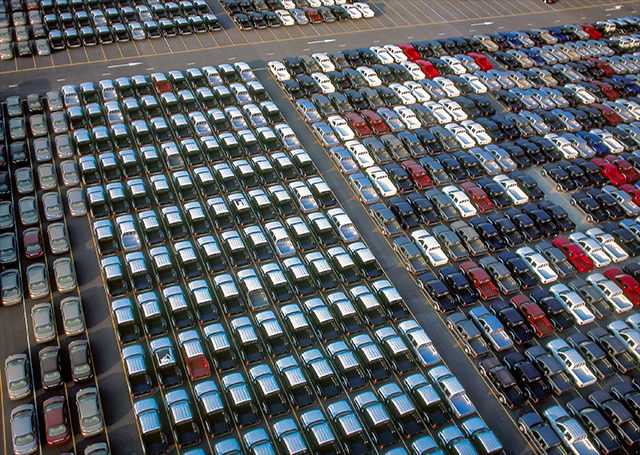German industry continues to face challenges, with production falling in July, particularly in the automotive sector. However, export figures show some positive signs despite the overall economic stagnation.

Production declines as exports rise
According to the Federal Statistical Office, German industrial production decreased by 2.4% in July compared to the previous month, and by 5.3% year-on-year. This decline is primarily attributed to the weak performance of the automotive industry, which saw an 8.1% drop in production compared to June.
In contrast, German exports showed improvement, reaching a seasonally adjusted value of 130 billion euros in July, a 1.7% increase from June. However, exports to China and the United States, key markets for the automotive industry, experienced declines.
Economic forecasts revised downward
Several leading economic research institutes have lowered their growth forecasts for Germany. The German Institute for Economic Research (DIW) now expects zero growth for the current year, down from its previous projection of 0.4%. Similarly, the Ifo Institute and the Leibniz Institute for Economic Research Halle (IWH) predict zero growth, while the RWI Leibniz Institute for Economic Research in Essen forecasts a minimal 0.1% growth.
Deutsche Bank economist Robin Winkler stated, “It is becoming increasingly clear that the German economy will stagnate this year.” DIW’s head of economic forecasting, Geraldine Dany-Knedlik, added, “The hoped-for recovery in industry that we had at the beginning of the year has not materialized.”
Calls for action and future outlook
The President of the Federation of German Wholesale, Foreign Trade and Services (BGA) urged the government to conclude new free trade agreements to strengthen the country’s economic model, citing concerns over declining exports to non-EU countries.
Sebastian Dullien from the trade union-affiliated IMK institute sees potential relief in the coming year through falling interest rates set by the European Central Bank. He predicts, “Next year, falling interest rates should bring some relief. In addition, wages are expected to continue to rise, leading to somewhat more consumption despite ongoing uncertainty.”
However, Dullien cautions that the recovery will be modest, partly due to uncertainty among the population caused by the federal government’s fiscal policies.









